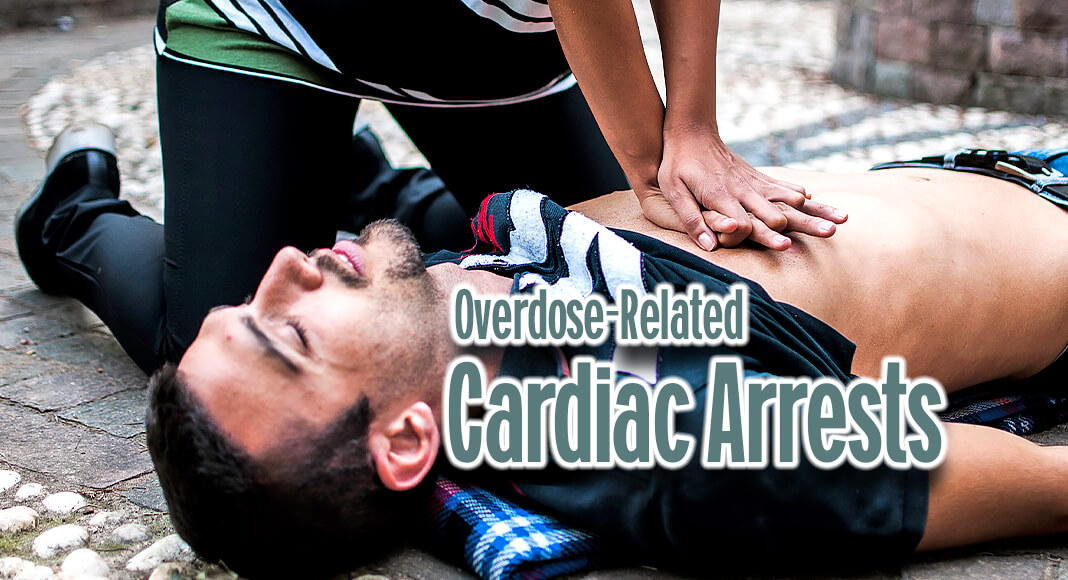
Mega Doctor News
By American Heart Association News
People whose hearts suddenly stop due to a drug overdose are younger, have fewer health problems and are more likely to survive with fewer neurological problems than those whose out-of-hospital cardiac arrests are due to other causes, new research shows.
The study, published Wednesday in the Journal of the American Heart Association, found drug-related cardiac arrests also were less likely to be witnessed by someone and less likely to have a shockable heart rhythm that could respond to a shock from a defibrillator.
“Many communities face ongoing challenges with increases in drug overdoses, which tend to affect a younger, healthier population,” lead study author Aditya C. Shekhar said in a news release. Shekhar is a medical student at the Icahn School of Medicine at Mount Sinai in New York City. “Given the recent increases in drug overdose-associated deaths, there is immense public health interest to better understand these types of cardiac arrests and how to treat them.”
Cardiac arrest occurs when the heart suddenly stops beating. Roughly 350,000 cardiac arrests occur outside the hospital each year, according to the American Heart Association. The majority of these are due to heart attacks or electrical issues with the heart, but opioid overdose-related cardiac arrests are a major cause of death for adults 25 to 64 years old.
People who survive cardiac arrests may have brain damage, internal organ damage and other problems.
Using data from the national Cardiac Arrest Registry to Enhance Survival, or CARES, database, researchers compared out-of-hospital cardiac arrests from drug overdoses to those from other causes. Among 360,000 cardiac arrests from 2017 to 2021, 8% were caused by drug overdoses. Drug-related cardiac arrests included both intentional and accidental overdoses from medication, legal and illegal drugs and alcohol.
The majority of people with drug-related cardiac arrests – about 95% – initially had a nonshockable heart rhythm, meaning one that would not respond to a defibrillator, compared to 79% of those whose hearts stopped for other reasons. Yet they were significantly more likely to survive and had better neurological outcomes.
When the first rhythm was shockable, the groups had similar survival rates.
People who had overdose-related cardiac arrests were twice as likely to return to independent living and perform daily living activities without assistance compared to those who had cardiac arrests due to other causes.
People who experienced overdose-related cardiac arrests were younger, with an average age of 39 compared to 64 for people whose hearts stopped for other reasons. They also had fewer health conditions, such as Type 2 diabetes, high blood pressure, kidney disease, heart disease, respiratory disease, high cholesterol or stroke.
“We were surprised that survival rates and neurological outcomes were significantly better in patients with nonshockable heart rhythms from drug-related cardiac arrests, even after controlling for age and other factors,” senior study author Dr. Ryan A. Coute said in the release. Coute is an assistant professor of emergency medicine at the University of Alabama-Birmingham Heersink School of Medicine.
“Our study suggests that different causes of cardiac arrest have unique features and, as a result, have different trends in their outcomes. There may be a growing need to treat different causes of cardiac arrest with different techniques,” he said.
The analysis also showed only 1 in 5 drug-related cardiac arrests were witnessed by a bystander, compared to nearly half of those due to other causes.
Shekhar noted that receiving bystander CPR can play a critical role in a person’s chances for survival.
“When someone has a cardiac arrest, their brain is starved of oxygen, and brain cells begin dying off within minutes,” he said. “Performing CPR has been shown to dramatically improve outcomes for cardiac arrest by helping get blood to the brain quickly.”










